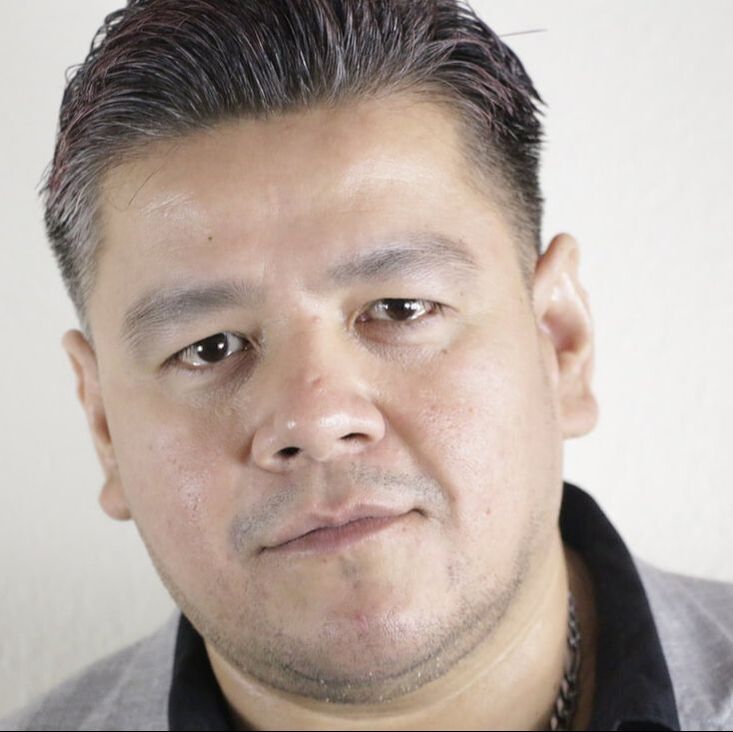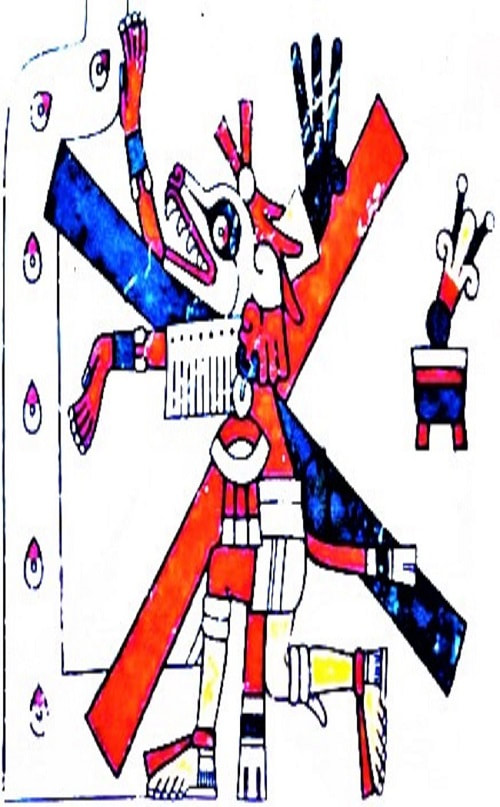|
IN THIS INTERVIEW FOR ARTE REALIZZATA I SPEAK TO UZOMAH UGWU ABOUT MY PUBLISHING GOALS AND THE MISSION FOR THE RAVING PRESS Gabriel Hugo is a Chicano author, poet, promoter, and actor from the Rio Grande Valley area. He is the founder of the publishing The Raving Press. I got to ask him why he writes, some of the important lessons he has learned about writing, and the hopes he has from his latest book.
UZOMAH: How do you use writing to create imagery? GABRIEL: I use descriptive text mixed with analogy and metaphor to create vivid imagery and meaning. As a reader, I do not like it when an author goes out of their way to describe a setting. So, I make it a point to use this technique mostly when describing something unique or meaningful in the story. U: Who are some of your favorite writers from Latin America and Mexico? G: Gabriel Garcia Marquez is my favorite writer from Latin America. His monumental book “One Hundred Years of Solitude” is a must-read for anyone and everyone in my view. It is the kind of writing that deserves to be translated a thousand times. U: What are some important lessons and techniques that you have learned as a writer that have improved your writing? G: The most important lesson that I have learned to improve my writing is respect for the urgency of the story that wants to be told, versus the ritual and romanticism of the act of writing. I know many writers who still buy physical journals with fancy embroidery and custom pens. They have this concept of being a writer that seems to be rooted in the idea of being “a writer”. This is what I mean about romanticizing the act of writing. To me, that takes away a lot of the inspiration that comes with writing. The best stuff is lost because you are trying to play the role of the writer with his pen and paper—the world be damned! Meanwhile, if you were to grab the tools that facilitate the capture of the inspiration, like a laptop or a voice recorder, you could get so much more work done without losing any of the raw inspiration that comes to you in the moment. A lot of times, if you don’t capture it then and there, it’s gone forever. U: How are authors, poets, and painters similar in how they portray emotions and even capture a scene? G: Authors, poets, and painters are all artists and creators. Their respective trades differ only in the end-product phase: a novel, a poetry manuscript, a painting. But the inspiration comes from the same source, which is an unknown force that coexists with the individual’s life experiences. Like a spirit. So, when the inspired piece comes to the artist, he or she captures it, and the emotions and scenery reflect partly the spirit’s vision and the artist’s experiences and training. U: Why do you write? G: For me, writing has always been intended for a higher purpose other than commercial success. Everyone wants to get paid, of course. I am no exception. But I understand that payment is an exceedingly small reward that expires when I leave this earth. And no one will ever care how much money I made from my works of literature. But if one of my poems, short stories, or novellas can impact one person to the degree that it leads to some change in their life, I know that I will live on, because they will remember what I gave them, and they will share that with others. U: How can Latinos use the art of writing to rewrite the narrative about them? G: Latinos have gotten an awfully bad deal in the annals of history. So much of that narrative is controlled by non-Latinos. Writing offers a way for us to change this reality. We start by writing our histories. Notice I did not say “rewriting”. It would be impossible for us to re-write something we never had a hand in. So, we write our history to reflect the best of ourselves and our forebearers and exclude the negative portrayals depicted in all the history books. As Dr. Jago Cooper, archaeologist and Curator of the Americas at the British Museum said, “History is the stories we tell ourselves.” Who in the world speaks of themselves in the worst terms? Only people who have a low self-image. For the longest time, we have been taught to think in such terms. Through writing, we can change that. U: Can you talk about the hopes of your book and what you want readers to get from it? G: My book, “Tenochtitlan Must Fall” is the retelling of the fall of the Aztec empire from the point of view of the indigenous Mexican people. This story is my first full-fledged effort to enact the goals that I mentioned above to change the versions of our history so we can change the versions of our future. It is the first installment in a book series entitled “The X Series”. U: How is writing a tool to better express yourself and the issues you face? G: Writing has always provided the best way to deal with issues on a personal and societal level. So much of our problems could be solved if people just sat down to write what is pressing on them. I believe all the worries that one has from money trouble to relationships and social issues, can be “coded” into whatever program you want to run, to use computer terminology. I have a background in psychology and therapy. In my training practicum and internship, I practiced Writing Therapy in which I would have my patients write down their problems, observations, feelings, and thought process when dealing with all of it. I noted how effective it was in helping people create the kind of results they wanted to see in their lives. I have also used this in my own personal life and can attest to its effectiveness. U: Can you describe the influence that reading other writers has had on you? Why is reading other artists important when first starting to find one's voice as a writer? G: In my opinion, it is especially important that writers first start their journey by being avid readers. In fact, it is quite impossible to become an effective writer if you do not first start by sampling the works of those who have come before you. For me, some of my biggest influences have come from a source that perhaps would not be considered influential in the making of a good storyteller. That source is the New Testament in the Christian bible. Some might think that this means that I am a Christian writer or spiritual writer. But to date, I have not written anything resembling a Christian book or piece of poetry. But the parables of Jesus were so inspiring and clarifying to me at a time in my life when I was experiencing great existential angst, that I realized for the first time the true power of writing. Jesus is perhaps the greatest, most influential being to have ever existed on Earth. But had it not been for the writings telling the story of his life, no one would truly know the power and meaning of his life and his words. I knew then that if I could only tap into the art of writing to a small degree like the writers of the bible, (and consequently many other books by great authors like Garcia Marquez and Jack Kerouac and others), I would be able to wield some of the magic of creation that is writing. U: Can you speak of the importance of having a publishing imprint such as Raving Press for highlighting Chicanos and other minorities in literature? G: Literature and all writing that has ever been set down in print acquire a certain degree of authenticity and authority by simply being in print, (and of course, nowadays also in electronic format). I am certain that every single author out there felt the same way when they were starting as I did, which was to feel like I was reading an inarguable truth when I read books by renowned authors. Sometimes the older the book, the stronger the case for its authenticity. But the problem early on in my life was that all the authors that I was exposed to were mostly white men. I don't remember reading a single author whose name or face looked even remotely like me. It wasn't until I graduated high school and went on to college that I started really discovering Latin American authors, Mexican writers, and Spanish sources. And the more I became enthralled by reading, the deeper I went into the vortex of "minority" voices that were out there but have always been completely ignored by mainstream society and educational systems. And only after I started my journey as a writer myself did I discover the power of publishing in and of itself. Over the years, through The Raving Press, I have helped give opportunities to authors and artists of all backgrounds and from across the world to showcase their talents and, more importantly, their voices which are rooted in their marginalized experiences. The only thing missing for small, independent presses such as The Raving Press are funds. The talent is there. The desire to be heard is there. The willingness to work is there. The need for marginalized voices to be part of the discussion is most evident now in this time of great social change. U: What would be the type of role you would like to see yourself play where it's an authentic portrayal of being a Chicano? G: I think that an authentic portrayal of "being a Chicano" is being fluid. In my view, the Chicano identity was born out of the inability to neither conform to nor fit in with the majority, mainstream, anglo identity in the United States. This prompted our communities to search our surroundings and our histories to find roots that could better inform our sense of self in the world. Chicanismo was a product of an era, a time in our collective history. But unlike the pyramids of Giza built of solid stone in the dessert seemingly defying time and the elements in an attempt to live forever unchanged, the Chicano identity was built like the pyramids of Tenochtitlan, over swampy grounds that constantly shift and change the shape of the surface; always in deconstruction and renewal...always changing. Through my own writings, and through the efforts of The Raving Press and other endeavors, I seek to provide that platform on which Chicanos, other minorities, and enlightened people of all backgrounds can come together to combine ideas and ideals that will help bring forth the future we deserve: a spiritual, mental, and cultural evolution that can transcend the limitations of our present day. It is a monumental goal to aspire to achieve, but I believe it is the only way that we can ensure the perpetuation of the human story.
Powered by
0 Comments
Leave a Reply. |
GABRIEL
|



 RSS Feed
RSS Feed
